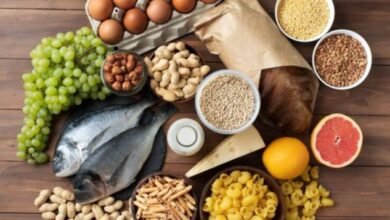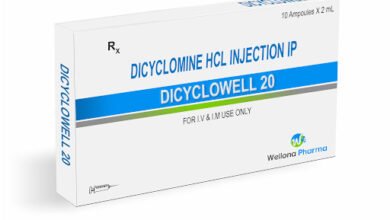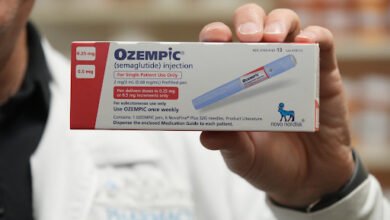Struggling with Period Poverty Motivated Me to Help Other Women

As told to Nicole Audrey Spector
When I first got my period at the age of 13, I was excited. It was finally here: the beginning of womanhood. Menstruation and all that came with it wasn’t something that was ever discussed in my home, and until that moment, I’d never even talked about it with my mom. Still, I knew this was a big deal, and I was pumped.
Once I got my period, my mom and I had a talk about what I could expect and how I could take care of myself while menstruating. Then we went to the pharmacy to get pads.
In time, the excitement about my period turned to agony. It wasn’t the symptoms associated with my period that were so painful for me. It was my financial situation, which kept me from easy access to the period products I needed. Money was tight and I often had to get creative with toilet paper because I couldn’t afford the pads and tampons I needed. Neither were sold or available in the restrooms at my school.
As the years passed, I eventually became a classic broke college student. I was living in a dorm far from home with other broke college students. A spare $10 — what it costs on average to cover tampons or pads every month — was something I usually didn’t have.
Tampons were like gold. I have a normal, heavy flow and require tampons that meet that need, and regrettably, those are more expensive than “regular” tampons. I went through them as sparingly as I could. But, ever aware of the risks of toxic shock syndrome, I was careful never to leave a tampon in for longer than eight hours.
Frequently, I relied on wadded up balls of toilet paper instead of products designed for periods. I cannot tell you how many lectures and lessons I sat through agonizing over what was happening between my legs instead of thinking about what was happening in class.
“Am I leaking? Is blood seeping through onto my chair?”
I was an anxious mess whenever I had my period. My life revolved, in dread, around it. If I was on my period and there was a social event or a study session happening, I was sure to be missing it. There was just too much at stake. Plus, was it really worth wasting a tampon over?
Though I had close friendships, I never shared my struggle to afford period products with any of my female friends. I was embarrassed and didn’t think there was any other way to be about it. Your period is something you’re taught to hide. Cover up the blood, cover up the smell, cover up the cramps. Pretend like it’s not even happening.
In retrospect, I wish I had opened up to friends. I am sure I would have found women who could have related to my difficult situation.
But I suffered in silence. Alone.
Life got easier once I graduated and began earning real income. I always knew I wanted to work with women and babies, so I immediately got a job in nursing. Over time, my career blossomed. I started out as a postpartum nurse and today am a perinatal HIV nurse.
Along the way, I’ve met so many women from all kinds of backgrounds. I’ve noticed something interesting about a lot of the women with low incomes I’ve worked with: When they leave the hospital, they often ask for period products, including pads and tampons.
Just like the old me, these women are likely struggling to cover the costs of these necessary products that I believe should be free to anyone who menstruates. Rather than feeling defeated by the problem, I decided to take action. I created my own nonprofit, In Bloom: Equity & Access for Happier Periods. The mission of the nonprofit is to raise awareness around period poverty and promote health and hygiene for all menstruating people.
Right now, In Bloom is a one-person army, and that army is me. I personally stock and deliver baskets filled with period products to any woman who contacts me saying that she is in need. I buy all the products myself. It’s not a cheap affair, but I am glad to do it and am hopeful to team up with sponsors in the near future.
There are a lot of women with low incomes here where I live in Fort Pierce, Florida, and the demand for period products is intense. I have teenage girls calling me up, desperate. They don’t want to go to school because they don’t have a tampon or a pad. How can I let them go without this basic need filled, knowing that their education is at risk?
Schools, I am happy to say, are getting better about making tampons and pads free and accessible. Workplaces, on the other hand, are being far less proactive and it’s disappointing. In public bathrooms, we don’t have to pay for soap, toilet paper or the ability to dry our hands. Why should we have to pay for a pad or a tampon? It’s appalling and simply wrong.
Periods are part of life. We shouldn’t have to go around whispering, “Do you have a tampon?” “Do you have a pad?” We should be able to boldly state our needs. And those needs should be met without a fee, like any other basic human right.
In order to make period poverty a thing of the past, we need to make the stigma around periods a thing of the past by talking about our periods openly and without shame. I’ll be doing my part. Will you do yours?
Have a Real Women, Real Stories of your own you want to share? Let us know.
Our Real Women, Real Stories are the authentic experiences of real-life women. The views, opinions and experiences shared in these stories are not endorsed by HealthyWomen and do not necessarily reflect the official policy or position of HealthyWomen.
Source link
#Struggling #Period #Poverty #Motivated #Women



